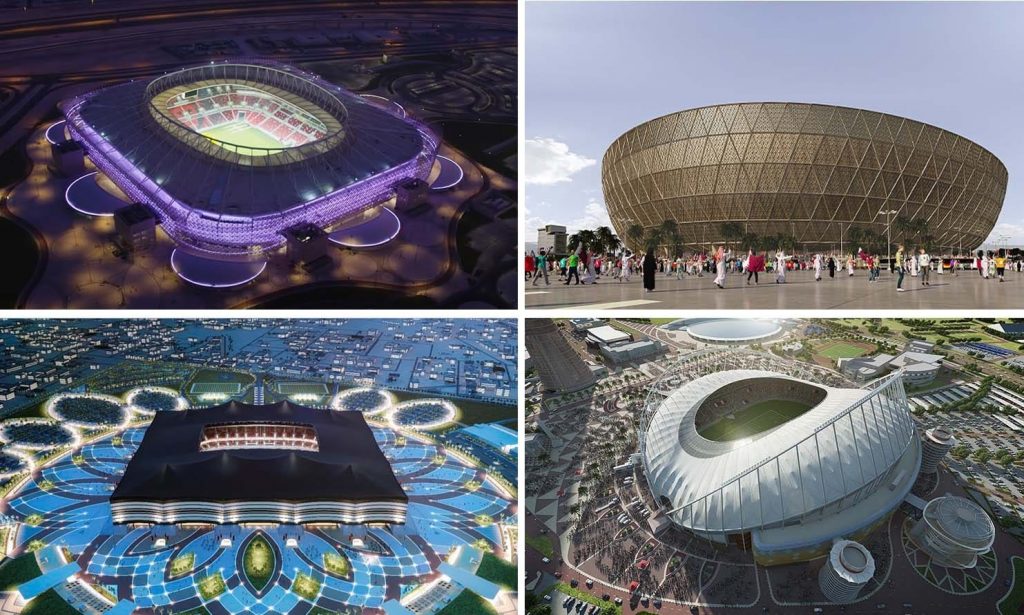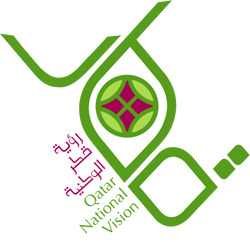The Undoubted Best Stage for Qatar Economic Growth: World Cup
On November 20, 2022, 2022 FIFA World Cup officially kicks off in Qatar. As the host of the most expensive sporting event in history, Qatar’s “football economy” is also the biggest investment it has made in its Qatar National Vision 2030.

As a Great Impetus to Qatar National Vision 2030
In 2008, Qatar issued its Qatar National Vision 2030, which centers on building Qatar into a sustainable country with strong international competitiveness and a high standard of living by 2030 through significant economic diversification.
As we all know, hosting the World Cup can enhance a series of infrastructure development of the host country, which can attract more foreign investment and international tourists in the future, and thus promote the development of Qatar’s national strategies. Hosting the World Cup itself is a part of Qatar National Vision 2030, according to an article in The National Interest. Qatar aims to transform its infrastructure into new communities, schools and hospitals after the tournament in order to raise its profile on the global tourism map.
As its first step toward implementation, in 2011, the Qatari government formulated the country’s first five-year development plan, which identified more than $65 billion of investment in infrastructure projects by 2016, including electricity and water supply, the construction of Doha New Port, as well as information and technology industries. Between 2010 and 2020, Qatar’s Gross Domestic Product grew steadily at an average annual rate of 4.5% after Qatar was awarded the right to host the 2022 World Cup. As the World Cup approaches, global interest in the development of Qatar’s sports industry has skyrocketed, with a budget of ten times more than the $220 billion invested in the previous two World Cups putting the sports industry in the spotlight for international investors. Qatar’s Ministry of Commerce and Industry has confirmed 83 business and investment opportunities for private sector participation, including event management and promotion, sports development, stadium construction, sports goods and equipment, sports commercialization, sports tourism and venue operations, etc. However, such a high level of investment is not all about hosting the World Cup, it is also inextricably linked to Qatar’s overall development plan.

As a Critical Power to Qatar Business Boost and Foreign Investment Attraction
In addition to the $10 billion for the new stadium, the remaining $210 billion will be used for transportation, communications, services and other infrastructure and long-term investments. Such a high level of investment will not only provide football fans around the world with an unparalleled World Cup experience, but will also support Qatar’s business boom and continue to attract foreign investment in 2022 and beyond. Akenchi, an economist at Uluda University in Turkey, believes that Qatar is not only demonstrating its highly developed economy and technological strength through the World Cup, but is also accelerating the transformation of its development pattern through this international event. Qatar’s infrastructure built for the World Cup, including public transportation, hotels and museums, will continue to function after the tournament, driving the rapid development of various industries such as aviation and cultural tourism, thus facilitating Qatar’s transformation from an energy-based to a service-based country.
Compared to the huge revenues FIFA can rake in from television broadcasts, sponsorship fees and licensed merchandise, the benefits to the host country from hosting the World Cup are immeasurable. Looking ahead to Qatar’s post-World Cup economy, Nasser Al-Khater, chief executive of FIFA World Cup Qatar 2022, who is in charge of Qatar’s World Cup preparations, said that about 1.2 million tickets have been sold so far for the 2022 World Cup in Qatar, while fans around the world have submitted 27 million ticket applications, with the final number of tickets to be sold reaching 2 million. In other words, the 2022 World Cup in Qatar is expected to attract about 1.2 million football fans from around the world to visit Qatar. In terms of the infrastructure itself for the World Cup, it will cost around $8 billion to build, but the World Cup effect will give Qatar’s economy a boost of up to $17 billion, leaving a staggering surplus after the event. While the huge infrastructure investment can’t be quickly recouped from revenues such as tickets, host countries often place greater value on the continued positive impact of the World Cup on their economies. Qatar’s National Vision and highly modern infrastructure will not only accelerate the development of the sports industry, but will also support the growth of other potential areas.

Tamim bin Hamad Al Thani, Qatar’s head of state, has previously said that the hosting of the 2022 World Cup in Qatar as well as the rising energy prices such as oil and gas, will boost Qatar’s economy, with gross domestic product expected to grow by 4.9% in 2022.
Organizing and preparing for the World Cup will provide a number of economic growth for the host country, the most obvious of which is tourism, hospitality and employment. The 2018 World Cup in Russia has brought in $14 billion in revenue as well as 220,000 jobs from the influx of foreign tourists, successfully boosting Russia’s confidence in its economic recovery and still benefiting today. The 2010 World Cup in South Africa and the 2014 World Cup in Brazil also generated 130,000 and 500,000 employment opportunities, respectively.
As a Vital Platform for Qatar’s Other Benefits
More importantly, Qatar’s tournament economy extends beyond the World Cup. The executive committee of the Asian Football Confederation (AFC) met at its headquarters in Kuala Lumpur on the morning of October 17 and voted to make Qatar the venue for the 2023 Asian Cup. It will be the second time Qatar hosts an intercontinental soccer tournament after 1 year of hosting the World Cup, as well as the third time that Qatar has hosted the tournament after 1988 and 2011.
Qatar was awarded the hosting rights because of its preparation and hosting of the 2022 World Cup, both in terms of hardware facilities such as stadiums and infrastructure such as transportation and accommodation, which all meet the requirements for hosting the Asian Cup and has impressed all parties with its work during the preparations for the World Cup.
Although the AFC has not announced the specific date of the tournament, it is likely that the Asian Cup will follow the example of the World Cup and be postponed from June 2023 to January 2024 in order to avoid the tournament being held in the hottest summer months in Qatar, which is expected to bring in about $120 million in revenue for Qatar.
Besides the huge economic gains expected from hosting the tournament, the Gulf countries represented by Qatar, are also aiming to continuously enhance their national soft power through the sports economy, including showcasing traditional Arab culture and the country’s local culture, as well as providing an excellent platform for the practical application of high-tech products by hosting the tournament, so as to display their new image of national transformation and development.
By hosting the World Cup, Qatar will also change some of the world’s negative perceptions of the Gulf countries. For example, the use of female referees for the first time in this year’s World Cup will effectively change the international community’s perception of the lower social status of women in the Gulf countries. Taking the Lusail Stadium as another example, built by a Chinese company, was awarded the highest rating in the global sustainability assessment system, which also changed the old impression of the Gulf countries as a serious energy waster.



